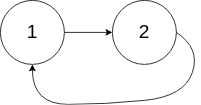2021-02-03 Daily-Challenge
Today I have done Integer to English Words and leetcode's February LeetCoding Challenge with cpp.
Integer to English Words
Description
Convert a non-negative integer num to its English words representation.
Example 1:
Input: num = 123
Output: "One Hundred Twenty Three"
Example 2:
Input: num = 12345
Output: "Twelve Thousand Three Hundred Forty Five"
Example 3:
Input: num = 1234567
Output: "One Million Two Hundred Thirty Four Thousand Five Hundred Sixty Seven"
Example 4:
Input: num = 1234567891
Output: "One Billion Two Hundred Thirty Four Million Five Hundred Sixty Seven Thousand Eight Hundred Ninety One"
Constraints:
- $0 \le num \le 2^{31} - 1$
Solution
class Solution {
const string ZERO = "Zero";
const string B = "Billion";
const int b = 1000000000;
const string M = "Million";
const int m = 1000000;
const string K = "Thousand";
const int k = 1000;
unordered_map<int, string> mp = {
{1, "One"},
{2, "Two"},
{3, "Three"},
{4, "Four"},
{5, "Five"},
{6, "Six"},
{7, "Seven"},
{8, "Eight"},
{9, "Nine"},
{10, "Ten"},
{11, "Eleven"},
{12, "Twelve"},
{13, "Thirteen"},
{14, "Fourteen"},
{15, "Fifteen"},
{16, "Sixteen"},
{17, "Seventeen"},
{18, "Eighteen"},
{19, "Nineteen"},
{20, "Twenty"},
{30, "Thirty"},
{40, "Forty"},
{50, "Fifty"},
{60, "Sixty"},
{70, "Seventy"},
{80, "Eighty"},
{90, "Ninety"}
};
string numberLT1000ToWords(int num) {
string result;
if(num >= 100) {
result += mp[num / 100] + " Hundred";
if(num % 100 == 0) return result;
result += " ";
}
if(mp.count(num%100)) {
result += mp[num % 100];
} else {
result += mp[(num % 100) / 10 * 10] + " " + mp[(num % 10)];
}
return result;
}
public:
string numberToWords(int num) {
if(!num) return move(ZERO);
string answer = "";
if(num >= b) {
answer += numberLT1000ToWords(num / b) + " " + B;
num %= b;
}
if(num >= m) {
if(answer.length()) answer += " ";
answer += numberLT1000ToWords(num / m) + " " + M;
num %= m;
}
if(num >= k) {
if(answer.length()) answer += " ";
answer += numberLT1000ToWords(num / k) + " " + K;
num %= k;
}
if(num) {
if(answer.length()) answer += " ";
answer += numberLT1000ToWords(num);
}
return answer;
}
};
oh, so many repeat, should do some refactor
class Solution {
const string ZERO = "Zero";
const vector<pair<int, string>> units= {
{1000000000, "Billion"},
{1000000, "Million"},
{1000, "Thousand"},
{1, ""}
};
unordered_map<int, string> mp = {
{1, "One"},
{2, "Two"},
{3, "Three"},
{4, "Four"},
{5, "Five"},
{6, "Six"},
{7, "Seven"},
{8, "Eight"},
{9, "Nine"},
{10, "Ten"},
{11, "Eleven"},
{12, "Twelve"},
{13, "Thirteen"},
{14, "Fourteen"},
{15, "Fifteen"},
{16, "Sixteen"},
{17, "Seventeen"},
{18, "Eighteen"},
{19, "Nineteen"},
{20, "Twenty"},
{30, "Thirty"},
{40, "Forty"},
{50, "Fifty"},
{60, "Sixty"},
{70, "Seventy"},
{80, "Eighty"},
{90, "Ninety"}
};
string numberLT1000ToWords(int num) {
string result;
if(num >= 100) {
result += mp[num / 100] + " Hundred";
if(num % 100 == 0) return result;
result += " ";
}
if(mp.count(num%100)) {
result += mp[num % 100];
} else {
result += mp[(num % 100) / 10 * 10] + " " + mp[(num % 10)];
}
return result;
}
void numberPartToWords(string &result, int &num, const int threshold, const string &unit) {
if(num >= threshold) {
if(result.length()) result += " ";
result += numberLT1000ToWords(num / threshold);
if(unit.length()) result += " " +unit;
num %= threshold;
}
}
public:
string numberToWords(int num) {
if(!num) return move(ZERO);
string answer = "";
for(const auto &[threshold, unit] : units) {
numberPartToWords(answer, num, threshold, unit);
}
return answer;
}
};
February LeetCoding Challenge 3
Description
Linked List Cycle
Given head, the head of a linked list, determine if the linked list has a cycle in it.
There is a cycle in a linked list if there is some node in the list that can be reached again by continuously following the next pointer. Internally, pos is used to denote the index of the node that tail's next pointer is connected to. Note that pos is not passed as a parameter.
Return true if there is a cycle in the linked list. Otherwise, return false.
Example 1:

Input: head = [3,2,0,-4], pos = 1
Output: true
Explanation: There is a cycle in the linked list, where the tail connects to the 1st node (0-indexed).
Example 2:

Input: head = [1,2], pos = 0
Output: true
Explanation: There is a cycle in the linked list, where the tail connects to the 0th node.
Example 3:

Input: head = [1], pos = -1
Output: false
Explanation: There is no cycle in the linked list.
Constraints:
- The number of the nodes in the list is in the range
[0, 104]. -105 <= Node.val <= 105posis-1or a valid index in the linked-list.
Follow up: Can you solve it using O(1) (i.e. constant) memory?
Solution
class Solution {
public:
bool hasCycle(ListNode *head) {
if (!head) return false;
ListNode *fast = head, *slow = head;
do {
if(fast->next == nullptr) return false;
fast = fast->next;
if(fast->next == nullptr) return false;
fast = fast->next;
slow = slow->next;
}while(fast != slow);
return true;
}
};